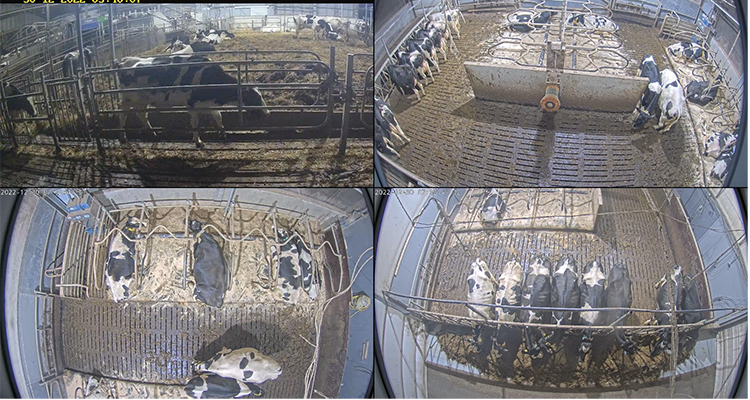
Thesis subject
Automated monitoring of dairy cow behavior and welfare (MSc)
Developing data science and IT applications for monitoring behaviour to enhance the health and welfare of dairy cows.
Short description
Sick cows are a problem for dairy farmers. These cows may suffer from pain, probably show changes in behavior and will experience impaired welfare. Moreover, health problems reduce the efficiency with which cows convert feed into human edible food and can shorten their lifetime. Rapid developments in areas such as sensor and imaging technology and automated image processing potentially provide solutions to detect such problems in an early stage and aid in obtaining better understanding of etiology of abnormalities and development of prevention strategies. However, before this is reality, large and complex datasets, often from various sources, have to be collected, stored, analyzed, and integrated. Challenges are first of all to handle such large amounts of data, second to convert these data into useful and meaningful information about the behavior, health and welfare of animals and third to provide practical handling tips. As part of the research line ‘data and models’ of the Next Level Animal Sciences (NLAS) innovation program, we have installed cameras and a tracking system at the Dairy Campus innovation centre to monitor behavior of more than 100 dairy cows. Moreover, other information from these cows, such as milk yields, body weights and body condition scores are collected routinely at each milking. With NLAS we aim to use data science and IT to solve challenges within our animal domain. Although the challenges can differ, the common ground lies in automated image processing, automatic pattern recognition and complex data analysis. Currently we have developed models that detect cows and key points of cows in video frames, but these require a lot of computing time. Moreover, the interpretation of the model output and integration with other information is still in its infancy. If you are passionate about leveraging your expertise in data engineering, AI engineering, computer vision, or data science to address real-world challenges in animal welfare, then this thesis opportunity is for you.
Objectives
- Automate pipelines to collect, store and analyze sensor data
- Develop data quality control pipelines
- Investigate new methodologies to analyse high-frequent, multidimensional data to improve animal health and welfare
Tasks
The tasks that you will be working on will highly depend on your own ambition and interests and can be specified in collaboration with your supervisor. They, for instance, can relate to the setting up of smart data architectures, the development of new explainable AI algorithms to monitor the behaviour of animals (both individually and in a group setting), or to better understand the sensors we are using.
Note: A large set of raw data is available for this thesis; if needed, additional data can be collected.
Literature
- M. Taghavi, H. Russello, W. Ouweltjes, C. Kamphuis, and I. Adriaens. 2023. Cow key point detection in indoor housing conditions with a deep learning model. Journal of Dairy Science. Article in press: DOI: https://doi.org/10.3168/jds.2023-23680
Requirements
- Required skills/knowledge: basic data analytics/statistics/machine learning/computer vision and willingness to learn new data-driven tools. Affinity with animal health and welfare.
Key words: Data Science, Animal Behavior, Computer Vision, Information Technology
Contact person(s)
Claudia Kamphuis (claudia.kamphuis@wur.nl)
Wijbrand Ouweltjes (wijbrand.ouweltjes@wur.nl)
Bert Klandermans (bert.klandermans@wur.nl)